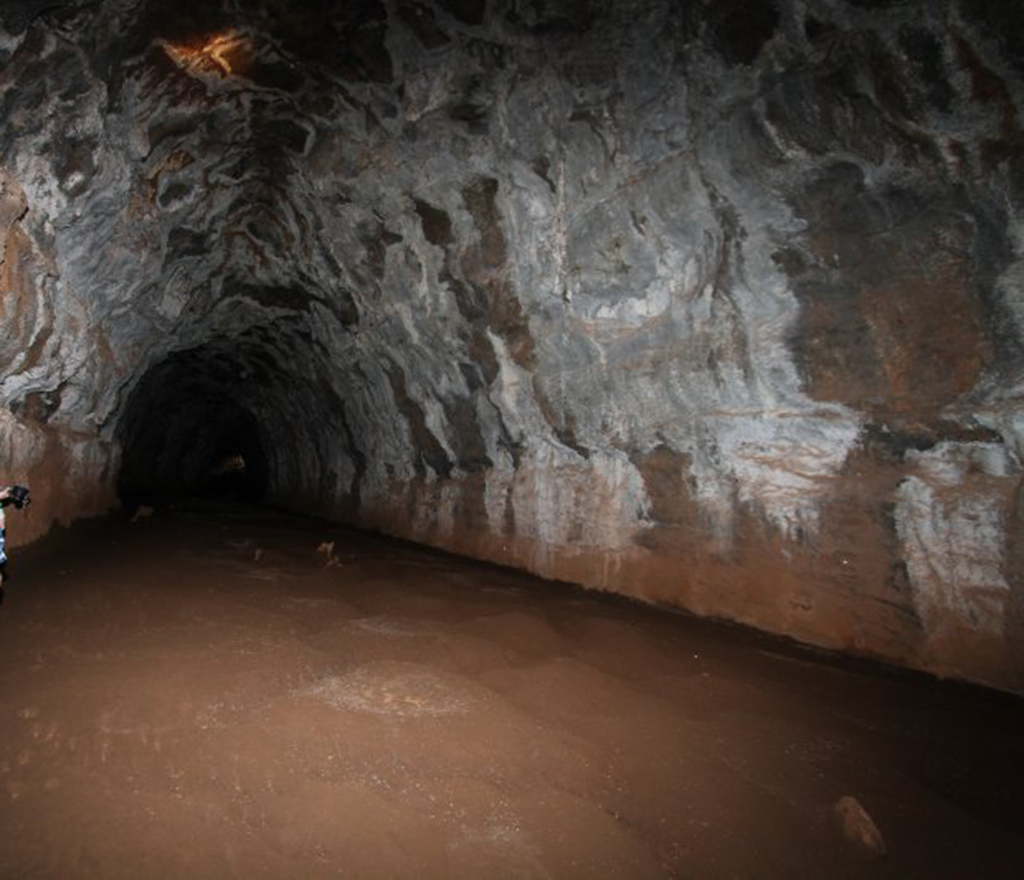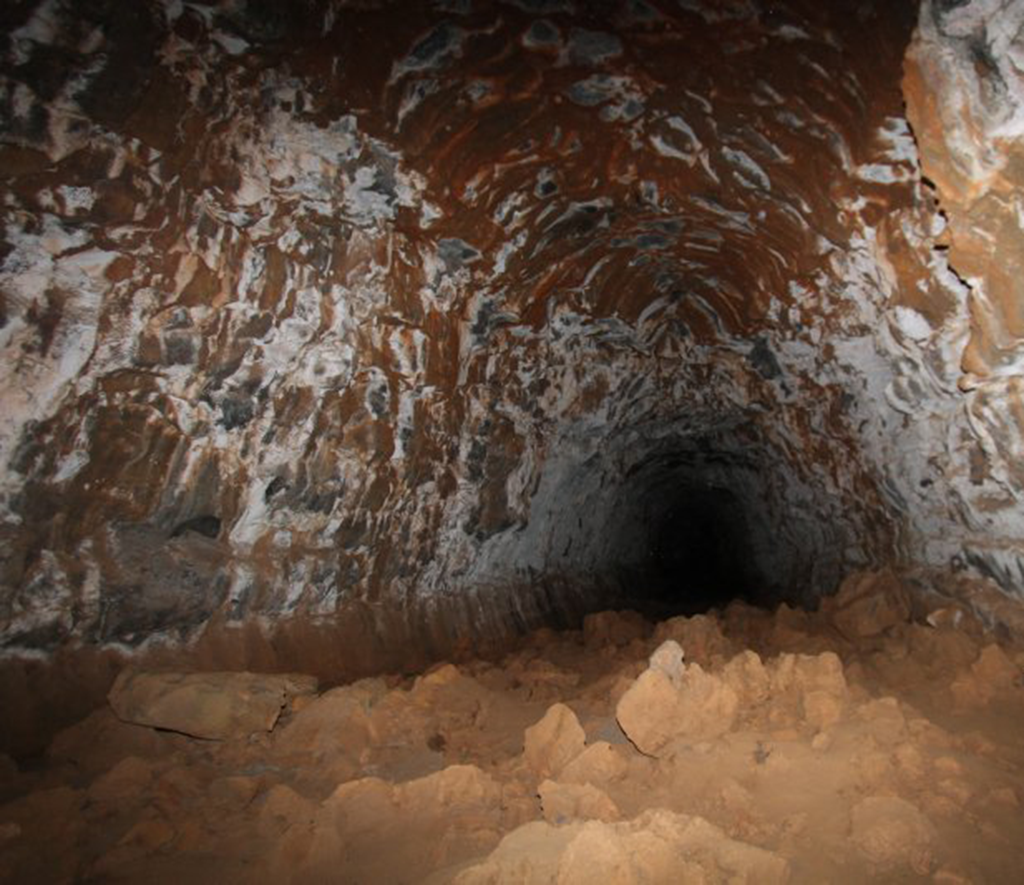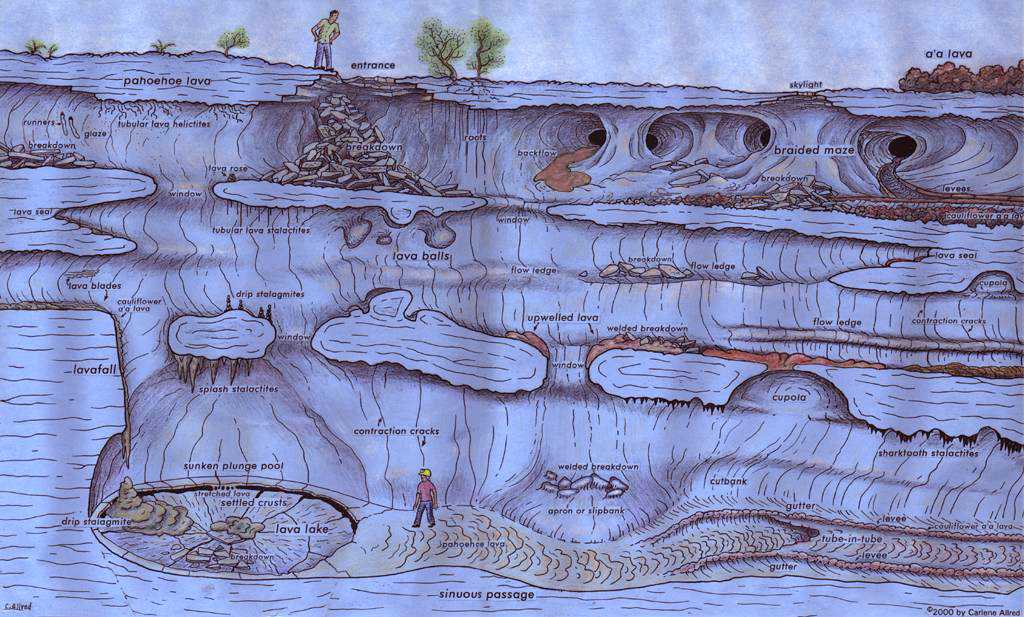Abandoned Caves
Some of the largest and longest lava tubes on Zihæt, these abandoned caves are located on the southern end of the Froúrio Range.
Geography
The lava tubes formed immense tunnels and caves, one of which is approximately 1.3 kilometers long, 11 meters high and 20 meters wide.
Localized Phenomena
The caverns have been also been called "bad air caves" due to high levels of poisonous gas which can collect in the winter months. While the levels are often sufficiently low for plantation slaves to ride out the summer and late fall storms, they rise in the colder air of the winter making the caverns nearly uninhabitable.
Fauna & Flora
The caverns are inhabited by all manner of reptile and flying mammal. Snakes, bats and more dangerous animals have been known to lair in the areas nearest the entrances and prey upon the local forest wildlife at night. Deep within the caves, more dangerous creatures able to tolerate the poor air can be found.
Within the caves, fungus and plant life is minimal due to the poor growing conditions and toxic air.
Natural Resources
The caverns are a layered with rich basalt. Other mineral deposits have been found, but are often found deeper into the tunnels where the air is poor.
History
The lava tubes were thought to be formed by immense volcanic activity which occurred hundreds of millennia ago. The lava that poured through these tubes formed the fertile plains of what is now the Sfentámi forest.
Near Surface in Abandoned Cave
The well-used surface near the entrance to one of the ancient lava tubes.
Deeper into Abandoned Cave
The rocky interior deeper into the ancient lava tubes.
Lava Tube Features
A Froúrio architect's description of the features of the lava tubes, for a course project.
Location under
Characters in Location
Related Reports (Primary)
Related Reports (Secondary)






Comments
Author's Notes
The region is modeled after the Undara Lava tubes of Northern Queensland, Australia, near Port Douglas